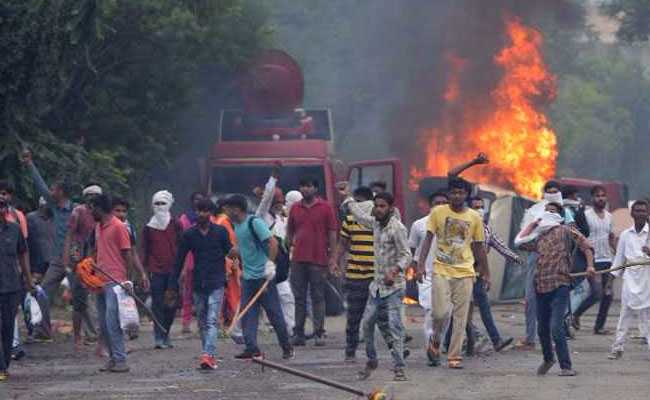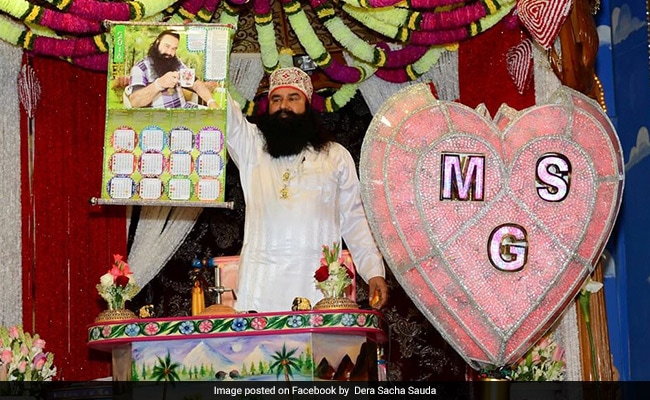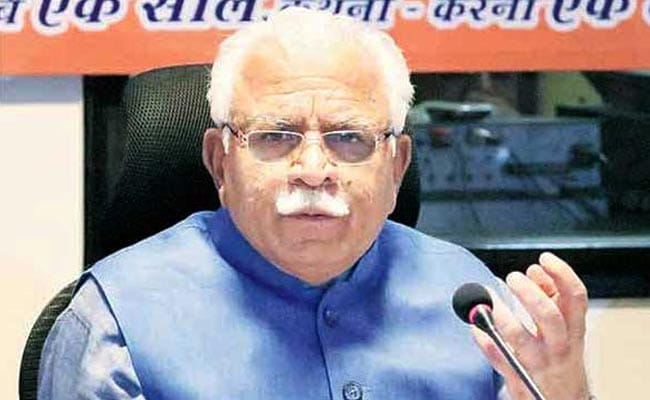There is no doubt that grave administrative lapses have happened in dealing with the situation in the aftermath of the CBI court verdict convicting the megalomaniac and self-styled Baba of Dera Sacha Sauda. Further, given his cult following, this should have been anticipated. But armchair critics clearly have no idea how difficult it is for the police to stop such congregations. It is even more difficult to remove determined crowds once they have assemble without resorting to brute force. In all fairness, it must be said that the repeated orders of the court were like utterances in fairyland, which the police could not have executed without killing a few hundred people on the eve of judgment day.

Violence in Haryana left 38 dead and 200 injured after self-styled "godman" Gurmeet Ram Rahim Singh was convicted for rape
There is no doubt that Dera followers came ready to indulge in violence if the verdict went against their belief. In such situations, security forces can act only post-facto because a court's verdict cannot be forecast in advance. Had it gone in Gurmeet Singh's favour and he been acquitted, his supporters would presumably have distributed sweets, broken into a bhangra and happily gone home. In a jurisprudence based on the belief of innocence till proven guilty, the administration cannot apprehend followers on the assumption that their "guru" would be convicted and packed off to jail.
Similar crowd congregations have happened in India many times before and the consequences have almost always been unhappy. But since the British in Jallianwala Bagh, no force in India has fired upon a large assembly sitting peacefully on the lawns. Was there any other way to disperse the huge crowd last Friday? Armchair critics continue to cite Section 144 CrPC, prohibiting the assembly of four or more persons, which had been promulgated there. Incidentally, this order is permanently in place in Central Delhi including India Gate and the vicinity of Parliament House. But any resident of Delhi would aver that the restriction is observed more in the violation.

Dera Sacha Sauda claims Gurmeet Ram Rahim Singh has 50 million followers
Allegations of political complicity have been raised by many critics with regard to the Panchkula tragedy. Although the Dera chief is widely known to barter the vote bank he commands, he is also said to be a political weathercock, switching from one party to another by shrewdly assessing the public mood. Besides, it defies logic and common sense to suggest that a popularly elected government would knowingly risk wanton violence and offend the majority of voters only to appease a bunch of rowdy cult members. There may have been a failure of anticipation, but to believe that the authorities deliberately overlooked the inherent dangers beats reason. Also, to regard the court's sermons as infallible is a grave fallacy. The threat to dismiss the Haryana DGP was a clear case of judicial over-reach, although it was within its right to alert the government to the dangers of a large and potentially unmanageable assembly. Would the courts have been accountable if a few hundred had died as a result of strongarm police measures to evict them?

Haryana Chief Minister Manohar Lal Khattar admitted to 'lapses' after the violence over the verdict against Ram Rahim
Once Gurmeet Singh is put safely behind bars for a long him and his malevolent Dera dismantled, we can hope that such events can be contained and dealt with a heavy hand in future.
(Dr. Chandan Mitra is a journalist, currently Editor of The Pioneer Group of Publications. He is also former BJP MP, Rajya Sabha.)
Disclaimer: The opinions expressed within this article are the personal opinions of the author. The facts and opinions appearing in the article do not reflect the views of NDTV and NDTV does not assume any responsibility or liability for the same.


